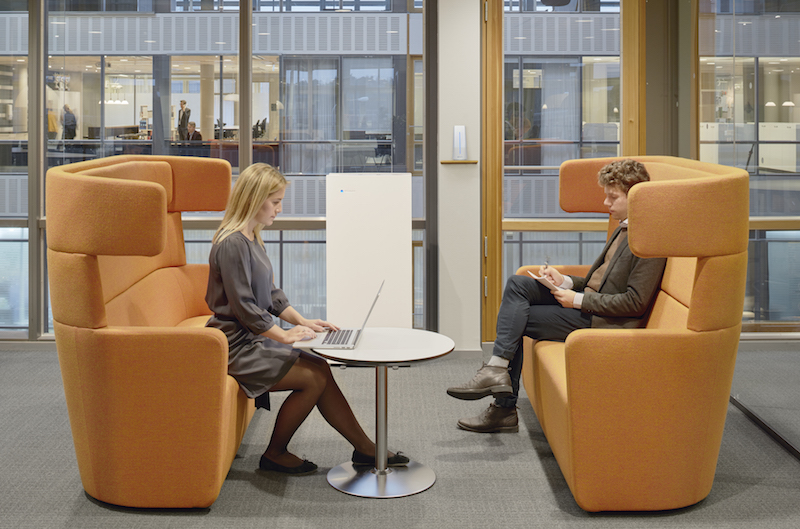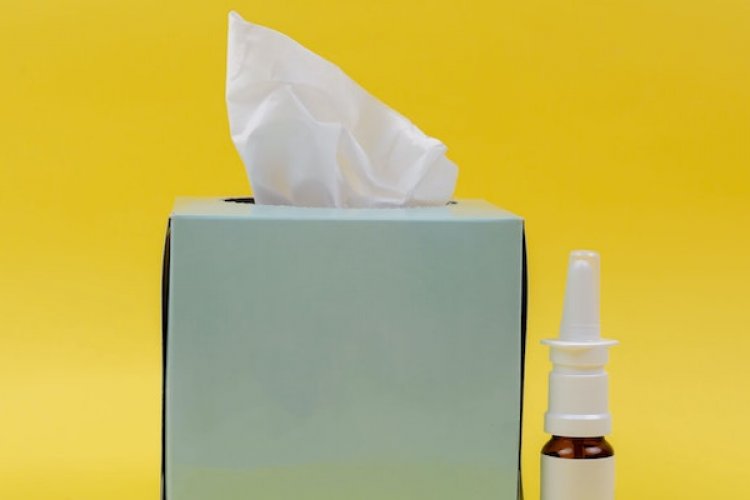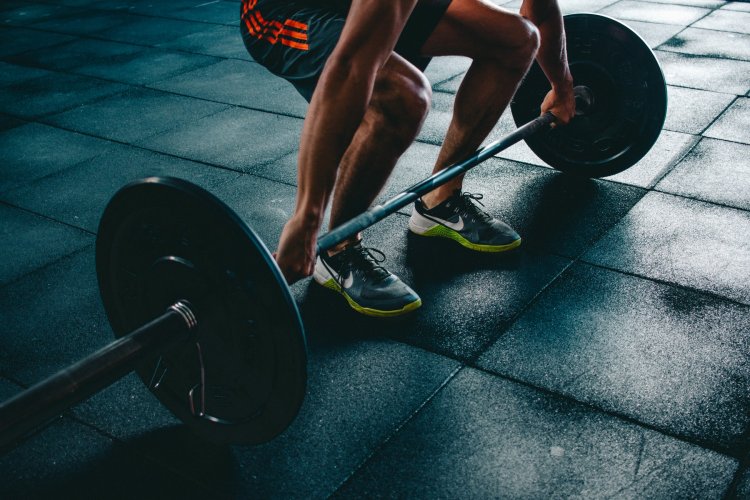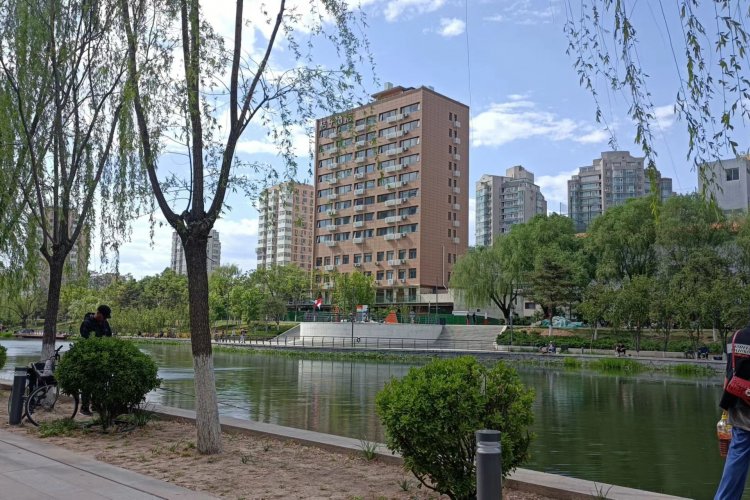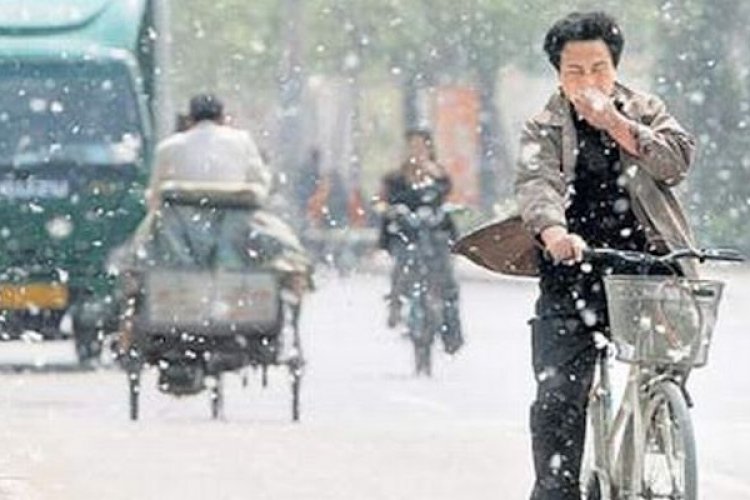Spring in the Air: Blueair Also Protects Offices Against Pollen, From Stockholm to Beijing
Spring is in the air, and nobody will be as aware of that as those suffering from severe pollen allergies during this time of year. Not everyone is rejoicing at this change of seasons, as some face the warmer days knowing there will be a dreadful few months rife with sneezing and runny eyes.
Perhaps more commonly known as hay fever, these symptoms are part of allergies that are common in spring, summer, and early fall, and are a result of sensitivity to airborne mold spores or pollens from grass, trees, and weeds.

These allergies are why, even in cities like Stockholm which are clean in terms of pollution, Blueair machines still serve a purpose. We spoke to Yi Yang, Blueair's project manager for product development, who tells us a little about Stockholm's natural environment, which is, perhaps not surprisingly, a lot better than that of Beijing.
"Stockholm is the world's least polluted capital city. The annual average PM2.5 concentration is 6μg per square meter in Stockholm, while the number for Beijing is 73μg per square meter. While we are still struggling to raise our currently not achieved standard to a WHO standard, Stockholm, a polluted city by Swedish standards, is already well within the WHO recommended limit," Yang says.
However, in cities like Stockholm, Blueair machines are able to help control pollen in large spaces like offices and schools, on top of cleaning the air of pesky pollution particles. Blueair machines are verified by AHAM (Association of Home Appliance Manufacturers) for exactly that reason; because they can clean smoke, dust, and pollen from a room, all using one machine.
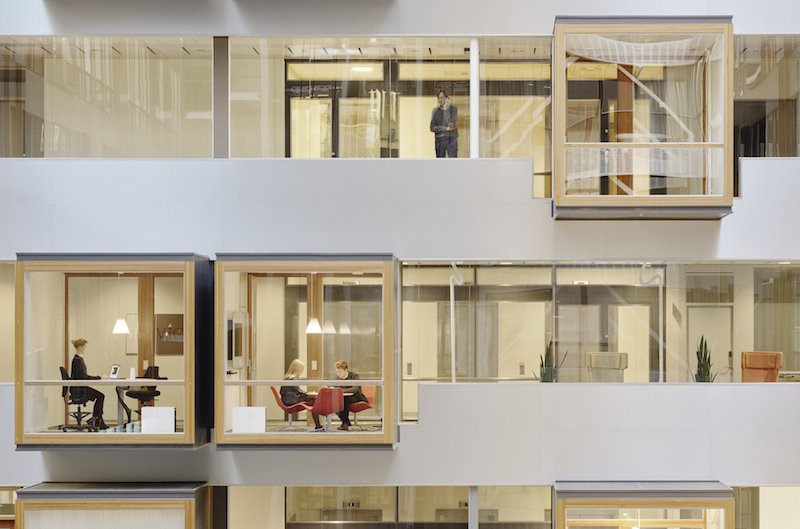
This means, Yang tells us, that Blueair air purifiers are also proven to work in "removing pollen from the air, which will relieve the user from any pollen-related allergy they might have." This is done by removing allergens, that come in the form of particles or gases, from the air. "Each allergen is actually a specific type of pollutant," Yang tells us, "so it makes no difference from a filtration point of view."
The same goes not only for Stockholm, of course, but also for Beijing, who's residents can suffer from allergies during this season. Apart from cleaning large offices, homes, and other indoor spaces from the PM2.5 pollutants we discuss often, the machines will also create an allergen-free environment, no matter where the machine is placed.
As for the future, Yang mentions the constant need to push the limits of effectiveness and efficiency of Blueair machines. "Service is a very important part in improving the life of people with allergies. Air purification is a combination of service and product. Therefore, a good project joining force with a good service is the best possible solution for allergies."
"Right now, the trend in the market is that the purifiers are heavily focused on protecting people from the smog," Yang continues. And for good reason, but Blueair aims to go beyond that: "A good product-service combination is to take care of the users no matter what their concerns are."
 This post is sponsored by Blueair
This post is sponsored by Blueair
Photos courtesy of Blueair

